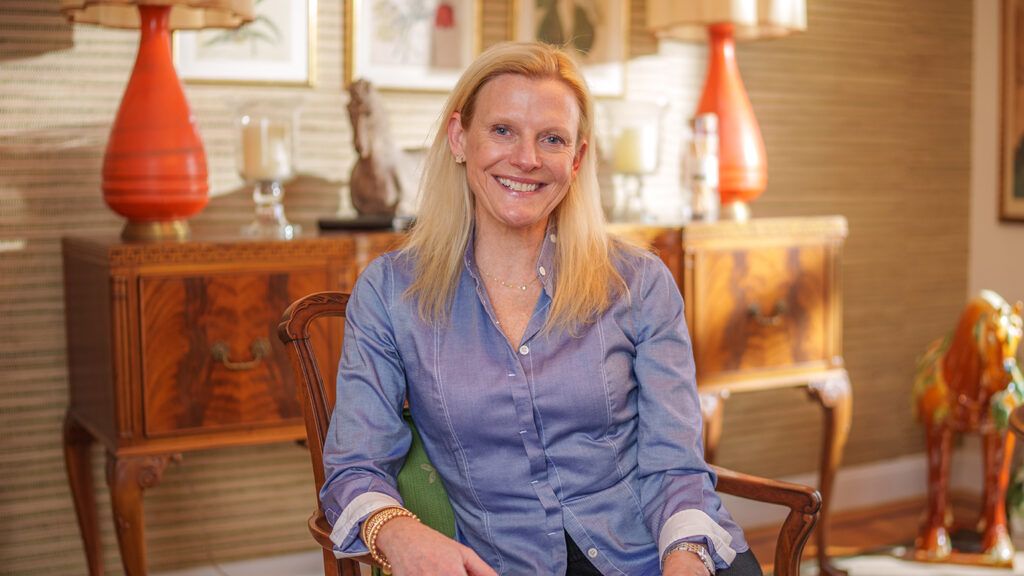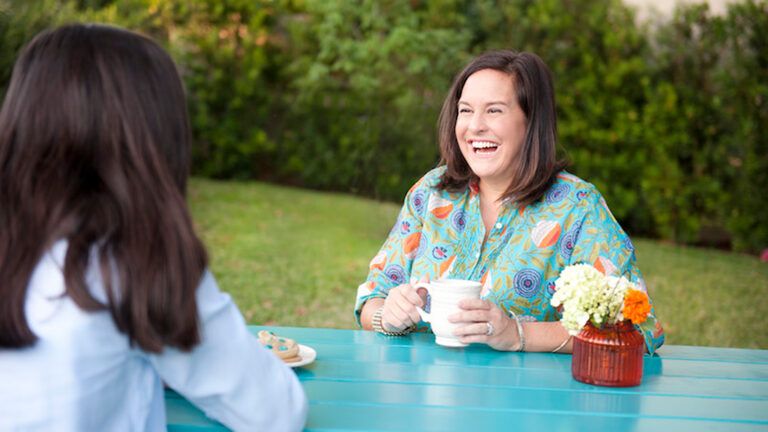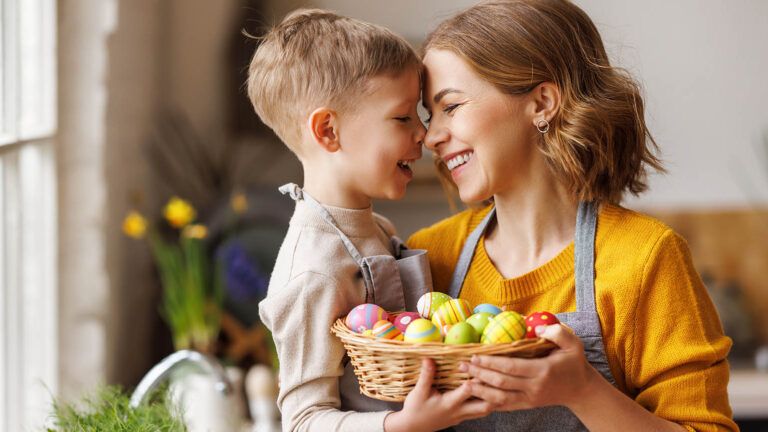When I heard that Simon & Schuster was releasing new unabridged audio editions of my grandfather Norman Vincent Peale’s classic books The Power of Positive Thinking and You Can If You Think You Can, I was beyond thrilled. And not just because I am proud of my grandpa and want more people to know about his work. It’s also because the pandemic has been so hard on our spiritual well-being.
For more than two years, Covid has forced us into isolation, heightening the divisions between us. That’s not how God and nature made us. Humans are wired to be social; our need to connect with others is as fundamental as our need for food and water.
It’s no wonder that rates of depression and anxiety have skyrocketed. As a clinical social worker and school counselor, I know we need my grandfather’s messages of positivity and connection more than ever. Which is why I’m sharing what he taught me about how to be a more positive person and make meaningful connections with others.
Be kind to others.
Small everyday acts of kindness have a bigger impact than you think. I’ve gotten so caught up in my to-do list that my week has sometimes felt like a slog. Then an unexpected spark of kindness would remind me not only to enjoy the moment but also that life is filled with such moments.
A compliment from a colleague. A call from my lawyer husband on a Wednesday afternoon, just to ask how I’m doing. (You know how busy things can get at work!) An email from an old friend saying he’d thought about me while watching the Winter Olympics, remembering that I’d played ice hockey in high school and college.
Each of those kind gestures gave me a boost of the neurochemical dopamine, known as the happy hormone, and encouraged me to pay the goodness forward. As one of the quotes from my grandfather that I keep on my bulletin board says, “Joy increases as you give it.”
Be kind to yourself.
The other day, I met with a student at the Episcopal school where I work. He sets the bar high for himself. He told me he’d made a mistake at lacrosse practice and couldn’t let it go. To help him get out of the negative thought loop, we talked about God’s grace.
“With every step you take, even the missteps, you are loved and valued by God,” I said. That’s something Grandma and Grandpa taught me. I wonder if Grandpa saw that he and I both tended to beat ourselves up for our mistakes and he wanted me to be kinder to myself. Give yourself the grace to slip up, to learn. No one gets everything right every time. Show yourself the kindness you show to others, in both word and action.
Be vulnerable.
How can we connect with others without opening up ourselves? My grandparents taught me that to be able to receive the love of God and of others requires vulnerability. You might think the author of The Power of Positive Thinking never had a negative moment in his life. Far from it. Grandpa shared freely about his own struggles with anxiety. There’s a whole section of the book on how to break the worry habit because he was prone to it himself.
As Van Varner, a Guideposts editor who worked with him for more than 30 years, put it: “Dr. Peale didn’t hide the fact that he had down days. He was, after all, an Ohio-born, plainspoken man.” I believe Grandpa’s emotional honesty helped him reach people from all walks of life. If you find it difficult to open up to others because you’re reluctant to expose yourself to hurt, try opening up to God first. Be vulnerable in prayer. You’ll forge a deeper connection with God and eventually with other people.
Be a part of something bigger than yourself.
You don’t need to start your own non-profit (though if you feel called to, go for it!). Join a group that’s doing something you care about. A community garden or children’s theater. The soup kitchen at your church. Volunteer dog walkers for people with mobility issues. Maybe simplest of all, join a prayer chain. Participating pulls you away from your own problems and gives you the opportunity to connect with someone else and what they’re struggling with.
I volunteer at a foundation that develops public spaces in Pawling, New York, the town where I grew up and where my grandparents lived on Quaker Hill. I’ve found it’s true what Grandpa said: “The more you lose yourself in something bigger than yourself, the more energy you will have.”
That goes for spending time in nature too. Grandma and Grandpa loved taking in all the seasons—the lush lilacs of spring, the glimmer of the summer sun on Quaker Lake, the changing leaves (especially on Grandpa’s favorite Japanese maple), the blankets of snow on their property. In each of these, and even in the harshness of a storm, they saw the workings of God.
Be a good listener.
Grandpa was a storyteller—and a masterful one, at that. But I think he might have been an even better listener. He loved meeting people around the world and hearing their stories. At a crowded event, his blue eyes would lock onto the eyes of the person he was speaking with, and he would listen intently, making that person feel they were the only one in the room.
I felt the same way as his granddaughter. With eight grandchildren (I’m the seventh), family get-togethers at Grandma and Grandpa’s house could grow boisterous. Yet I never got lost in the shuffle. Grandpa would take my hand, his eyes twinkling from behind his glasses, and say, “Katie, tell me what’s on your mind….” Then he’d proceed to give me his undivided attention for as long as I needed.
I didn’t feel as if I had to tell him only good things either. It didn’t matter if I was talking about a term paper that was stressing me, a spat I’d had with a friend or what I wanted to give my mom for her birthday, Grandpa was 100 percent interested.
He showed me how to give someone a sense of connection, how to make them feel heard and valued, something I try to put into practice every day at my job when students come to talk to me. In the end, that might be the most meaningful, positive, life-affirming message we can give someone else: “You matter.”
For more inspiring stories, subscribe to Guideposts magazine.




